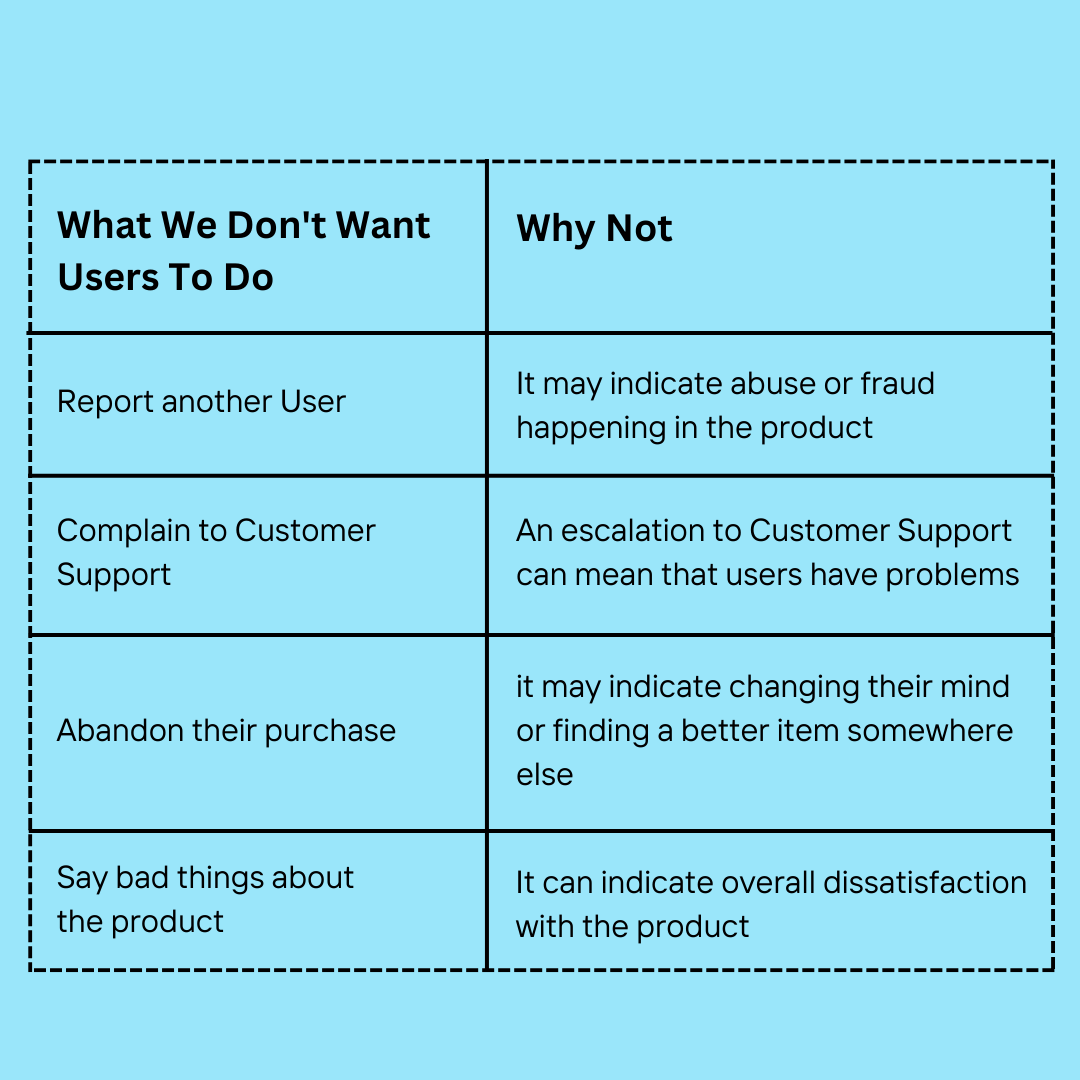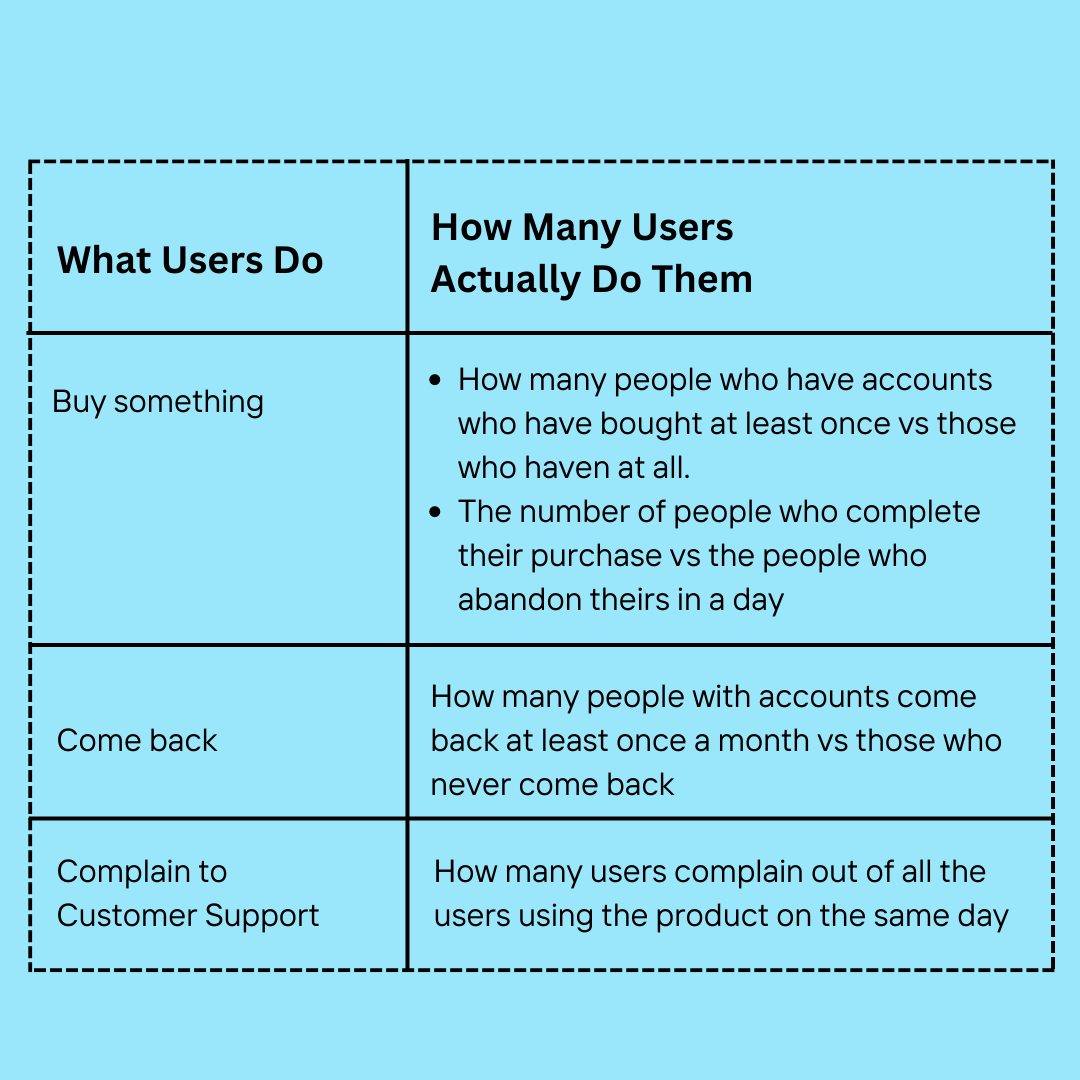Issue #21: How to Measure Success, The Scarcity Mindset & Careers, This Week's Roundup, & More
Learn: how to define metrics with this simple question, how to change your mindset and attract abundance, and more
Hola friends! 👋
This week’s thoughts and feelings include:
How to measure success
The Scarcity Mindset and how it can impact our careers
My Friday Round-Up
Trying a new format this week! Let’s go!
01 How to measure success
Being able to define what success looks like, or defining product outcomes or metrics, is an important tool in any Product Manager’s toolkit.
It’s how we know if the products we’re building, are providing value, for the people we’ve built them for.
When we have defined our outcomes to follow, we can understand if our products are doing well or not. And we can confidently make decisions about what we should do next.
Some amazing product people, like Pawel Huryn, shared an ultimate list of Product Metrics that PMs can use.
But while having a reference is handy, there are times when what’s on the list won’t really cover what you need. So let me share the technique I use to define outcomes.
Defining outcomes is defining how we want our users to behave while they use our products. It’s a measure of people’s behavior.
How people behave is a good representation of whether or not a) we’re delivering value to our users b) so we can capture value back to our business.
So how do we do that?
As with anything, things always start with a question: If our product was indeed solving problems for our users:
What should they be doing more of? What should they be doing less of?
How often should they be doing these?
How many people should be doing the things you want them to do in order for you to say “we good”?
At the same time, the way users interact with our products is a journey. There is a beginning, a middle, and an end. And the way they behave in different moments of the journey can give us an indicator that we can get them to the end successfully — and then back again.
Before starting with any number, we should start with articulating, in plain human language, these expected behaviors that we want to see. So let’s go!
Starting with the first question - what do we want our users to do?
We should also watch for behaviors that we don’t want users to do. Because they may indicate problems our users are experiencing throughout their journey.
Now that we know the behaviors we want to watch out for - in some cases we also expect them to behave in a certain way. For example in terms of frequency, speed, or level of completeness.
And lastly, we should also look at how many people are displaying the behaviours we have identified vs all the other users. As how many (or how little) may also give us an indicator of how many people find value in our product.
These behaviours are observable and can be turned into a number. So we can count them, compare them, and make decisions about them.
So next time you’re feeling stuck on which metrics or outcomes you want to define, and the usual lists are not cutting it for you (or you can’t remember them in the first place) - just remember that it’s all about human behaviors.
So get started by asking yourself:
If our product is really solving problems for our users, what behaviors do we want to see from them?
Tip: Make sure you’re not defining these metrics on your own. Involve your team early on. Do these with analysts! The earlier you involve other people, the earlier you can already start looking at how you will all track these behaviors and measure them over time.
02 The Scarcity Mindset and How it Can Impact Our Careers
Have you heard of The Scarcity Mindset? It’s a belief that we have, that there are limited resources and opportunities out there, and that we may miss out on them. This mindset also impacts the way we behave and make decisions.
For example:
Hesitating to apply for roles because the market seems difficult and competition will be tough.
Stay in a miserable job for fear of not landing another one.
Treating colleagues as competition and being always afraid/concerned that they might do better.
Being wary and critical of people who are better and feeling bad for their accomplishments.
Feeling that you’re behind or not “there” yet or believing you’re not enough.
And the consequence of this mindset is pretty clear too. We miss out on opportunities by actively avoiding them. We might be perceived as difficult to work with and uncollaborative. And we might be constantly stressed and overwhelmed by the pressure of trying to catch up to an imaginary race.
It’s not easy to switch from a mindset of Scarcity to Abundance. But it’s really really important.
There are a lot of tips out there on how to develop an Abundance Mindset. Here are mine:
Be conscious of the stories you’re telling yourself. Are you constantly telling yourself that the job market is hard and it’s difficult to find a job? Or are you getting clear on what kind of job, company, and role you’re looking for so you can prioritize and define a strategy for how you might get it?
Practice affirmation. Do you know what you’re good at? Do you recognize your own expertise and achievements? Do you know your superpowers?
Apply Product Mindset. You can treat your career the same way you would your product. With optimism and objectivity.
Break down challenges into small problems you can address.
Experiment with your ideas. Have assumptions? Measure success!
Collaborate with other “cross-functional” peers. Find a mentor or a coach to help you unblock yourself.
Don’t compare yourself with other people! Easier said than done, I know. But remember that everybody has their own goals, strengths, and context. We might be on a similar and parallel path - but we’re not all the same.
Practice gratitude. Acknowledge the things that you DO have. The things that provide you value, that make you feel good, and that make you already successful.
People say that putting ourselves in a mindset of abundance attracts even more abundance. I 100% agree. Not only can it help us approach our ambitions calmly and strategically; but it can also help us easily spot the opportunities that are already around us.
03 My Friday Round Up!
Tiffany Chang from
is generously sharing her notes from Shreya Doshi's recent webinar on habits for Product Management.The ultimate Notion Setup for 2023 by Wesley Anna! I’ve been a Notion user for years now but these days, I’m slowly turning into my 2nd brain, executive assistant, wiki, and more. So I’ve been in a Notion blackhole 🤓
Before we go!
I’m part of the INDUSTRY Virtual: The Product Conference Spring 2023! If you missed my talk about Product Leadership in Industry Dublin, now’s your chance to catch it. I’ll be also taking questions and feelings afterward. 😎
I was on the Product Momentum Podcast by ITX talking about Ru Paul’s Drag Race and Outcomes vs Output. Have you listened yet? (Please do! I’d love to know what you think. 🎉
I just launched OPEN for OPPORTUNITIES! The Ultimate Guide to Sustainable Job Search for the Modern Product Manager. 7 out of 10 people reaching out to me for Coaching support are doing so because they struggle with finding roles! So I wanted to extend the help to more people out there in a more accessible way. For newsletter subscribers, I’m offering a 10% discount (already applied in the link above)
Have you read anything cool lately? Can you share in the comments? 👇
💙Kax
If you’re enjoying this newsletter, how about sharing this with your friends or anybody else who might enjoy it too (i.e. maybe colleagues who are not friends? 😅










Good suggestions on measuring success. Agree you need to start and don’t do metrics alone. Thank you!
I like that way to think about approaching metrics, Kax.
I've found many product folks around me over time have a tendency to work within the confines of the metrics they know they can actually pull today versus what could be. This approach could help create the conversation needed to create the metrics you may not have access to right now.